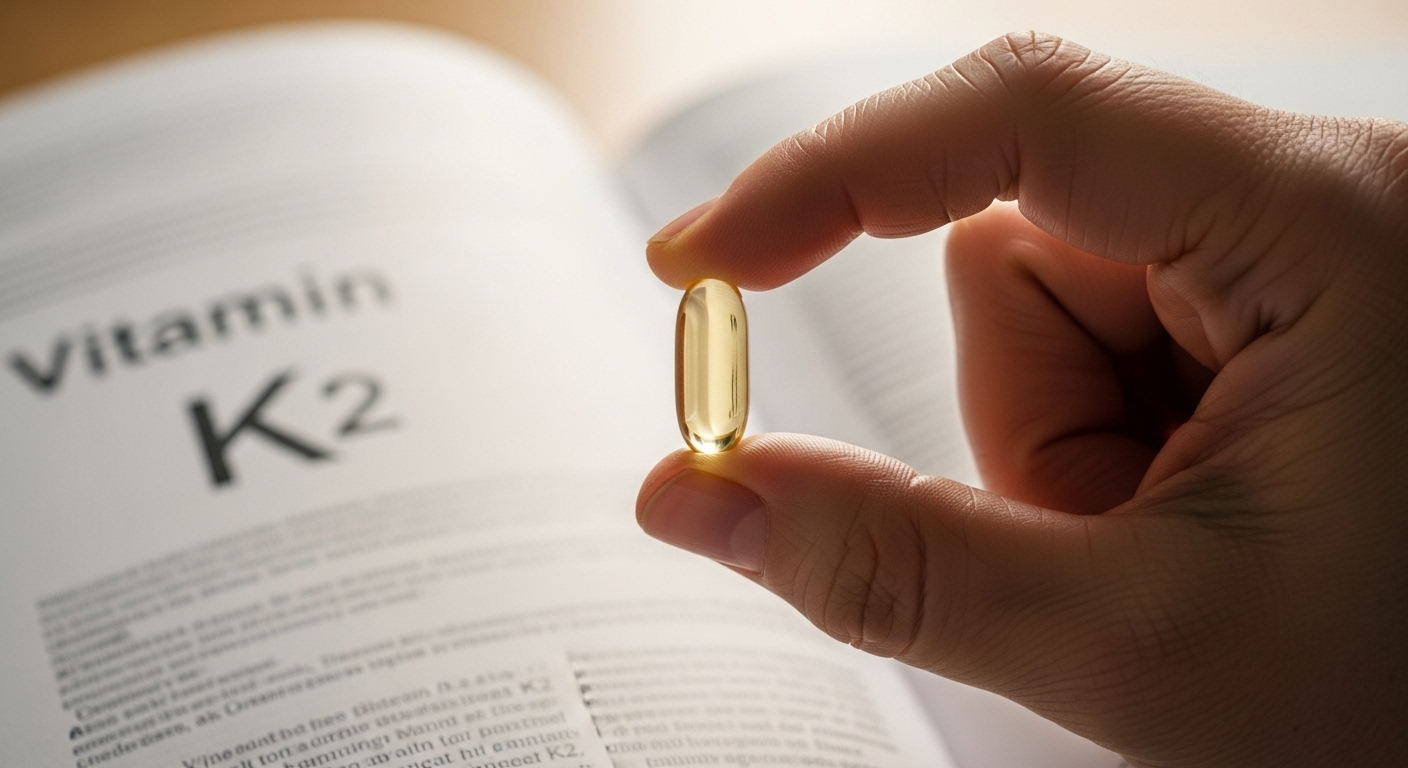Vitamin K2: The Unsung Hero of Bone and Heart Health
Vitamin K2, a lesser-known nutrient in the vitamin K family, has emerged as a crucial player in maintaining bone strength and cardiovascular health. Despite its importance, K2 often lurks in the shadows of its more famous sibling, vitamin K1. This oversight is unfortunate, as mounting evidence suggests that K2 may be equally, if not more, vital for overall well-being. Unlike K1, which is primarily found in leafy greens and is essential for blood clotting, K2 is synthesized by bacteria and plays a unique role in calcium metabolism. Its ability to direct calcium to bones while preventing arterial calcification has sparked interest among researchers and health enthusiasts alike. As our understanding of K2 grows, so does the recognition of its potential to address widespread health concerns related to osteoporosis and heart disease.

Chemical Structure and Subtypes
Vitamin K2, also known as menaquinone, exists in several forms, each denoted by the number of isoprenoid units in its side chain. The most common subtypes are MK-4 and MK-7. MK-4 is found primarily in animal products and is the form most easily utilized by the body. MK-7, on the other hand, is produced by bacterial fermentation and has a longer half-life in the bloodstream, making it potentially more effective for long-term supplementation.
Dietary Sources and Bioavailability
Unlike vitamin K1, which is abundant in green leafy vegetables, K2 is found in fermented foods and certain animal products. Natto, a traditional Japanese food made from fermented soybeans, is the richest known source of K2, specifically MK-7. Other sources include cheese, particularly hard and aged varieties, egg yolks, and organ meats. The bioavailability of K2 from these foods is generally high, as it is fat-soluble and easily absorbed in the presence of dietary fats.
Role in Calcium Metabolism
One of vitamin K2’s most crucial functions is its role in calcium metabolism. It activates osteocalcin, a protein that binds calcium to the bone matrix, thereby promoting bone mineralization. Simultaneously, K2 activates matrix Gla protein (MGP), which inhibits calcium deposition in soft tissues such as arteries and kidneys. This dual action of directing calcium to where it’s needed (bones) and away from where it’s harmful (arteries) makes K2 a potent ally in the fight against osteoporosis and cardiovascular disease.
Cardiovascular Health Benefits
The impact of vitamin K2 on heart health has been the subject of several large-scale studies. The Rotterdam Study, which followed over 4,800 participants for seven years, found that individuals with the highest intake of vitamin K2 had a 57% lower risk of dying from heart disease. Another study, the Prospect-EPIC cohort, showed that for every 10 micrograms of K2 consumed daily, the risk of coronary heart disease decreased by 9%. These findings suggest that K2 may play a crucial role in preventing arterial calcification, a major risk factor for cardiovascular events.
Bone Health and Osteoporosis Prevention
In the realm of bone health, vitamin K2 has shown promising results. A three-year study of postmenopausal women found that those taking K2 supplements had significantly less bone loss compared to the placebo group. Moreover, K2 appears to work synergistically with vitamin D and calcium, enhancing their bone-building effects. This has led some researchers to suggest that K2 supplementation could be a valuable addition to osteoporosis prevention and treatment protocols.
Potential Cancer-Fighting Properties
Emerging research indicates that vitamin K2 may have anti-cancer properties. In vitro studies have shown that K2 can induce apoptosis (programmed cell death) in various cancer cell lines, including those of liver, colon, and leukemia. While these findings are preliminary and require further investigation in human trials, they hint at the possibility of K2 playing a role in cancer prevention or as an adjunct to conventional cancer therapies.
Challenges in Supplementation and Dosage
Despite its potential benefits, determining the optimal dosage for K2 supplementation remains challenging. Unlike many other vitamins, there is no established Recommended Dietary Allowance (RDA) for K2. Dosages used in studies have ranged from 45 to 360 micrograms per day, with most positive results seen at higher doses. The form of K2 also matters, with MK-7 generally considered more effective for supplementation due to its longer half-life. However, individual needs may vary based on factors such as diet, age, and health status.
Interactions and Contraindications
While vitamin K2 is generally considered safe, it can interact with certain medications, particularly anticoagulants like warfarin. Individuals taking these drugs should consult their healthcare provider before starting K2 supplementation. Additionally, those with certain genetic disorders affecting vitamin K metabolism may need to avoid high doses of K2. As with any supplement, it’s crucial to consider potential interactions and side effects, even though adverse reactions to K2 are rare.
Future Research Directions
The field of vitamin K2 research is rapidly evolving, with several areas ripe for exploration. One promising avenue is the potential role of K2 in brain health, as preliminary studies suggest it may help prevent cognitive decline. Another area of interest is the impact of K2 on insulin sensitivity and glucose metabolism, which could have implications for diabetes management. As our understanding of K2’s mechanisms grows, we may uncover even more applications for this versatile nutrient in preventive medicine and health optimization.
In conclusion, vitamin K2 represents a fascinating frontier in nutritional science. Its unique ability to regulate calcium metabolism, coupled with its potential benefits for heart, bone, and overall health, makes it a nutrient worthy of attention. As research progresses, we may see K2 move from the sidelines to center stage in health recommendations. For now, ensuring adequate K2 intake through diet or supplementation appears to be a prudent strategy for many individuals seeking to optimize their health and longevity.




